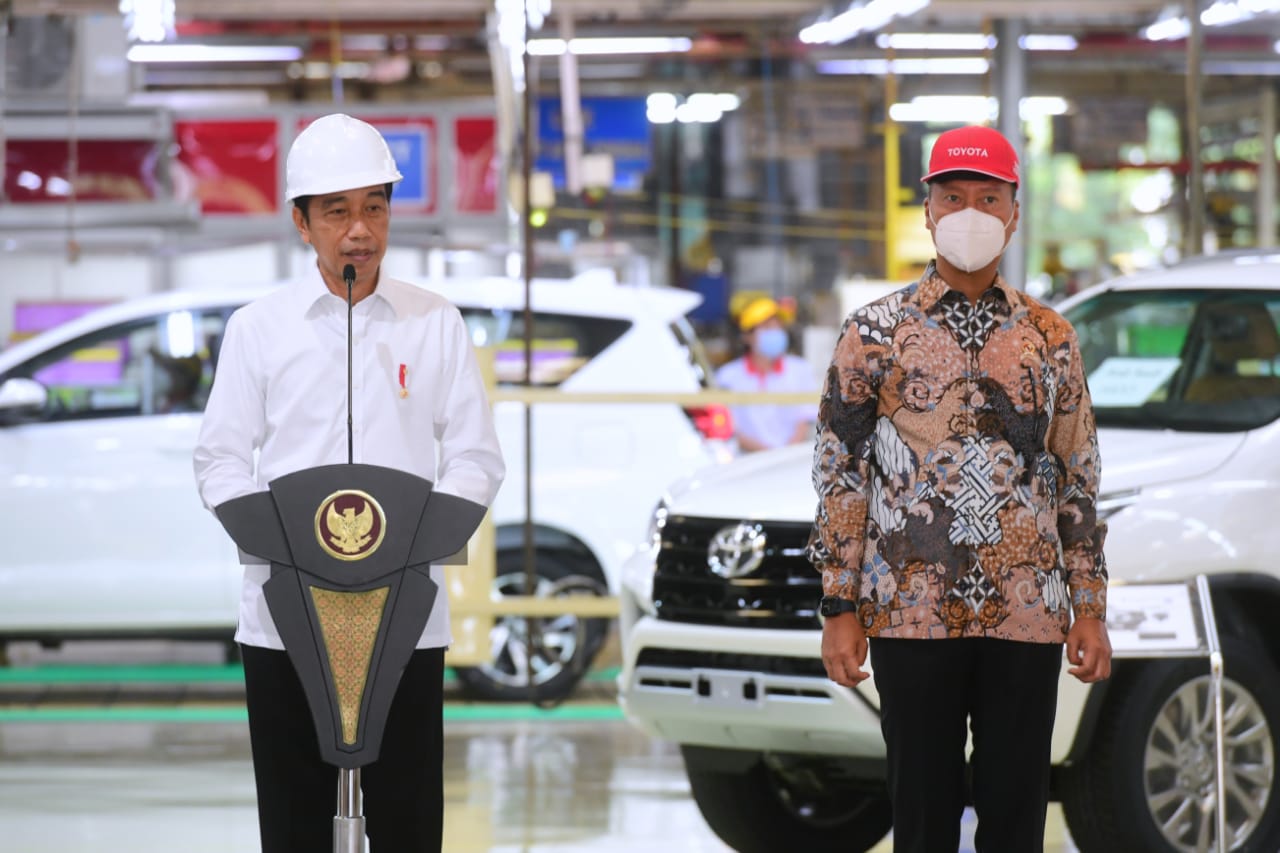Growing 17.82 Percent, Minister of Industry: Automotive Industry Able To Absorb Many Workers
Newstoday Jakarta - In the midst of the COVID-19 pandemic that hit, the automotive industry was still able to show its stretching. This can be seen from the rate of industrial productivity which is maintained in meeting the needs of the domestic and export markets.
Minister of Industry (Menperin) Agus Gumiwang Kartasasmita said that the growth of the automotive sector is one of the main supports for the growth of the manufacturing industry and the national economy as well as absorbing a lot of workers.
"The transportation/automotive equipment industry has grown tremendously in 2021, reaching double-digit growth of 17.82 percent. The absorption of labor is also quite high, directly or indirectly. Around 1.5 million workers along the industrial value chain," said Agus at the Inauguration of Toyota's Two Million Units of Export Production and the Release of Fortuner's Prime Exports to Australia by Indonesian President Joko Widodo (Jokowi), Tuesday (15/02/2022). ), in Karawang Regency, West Java.
The Minister of Industry revealed that currently the national automotive industry is fronted by a number of 21 companies with a production capacity of 2.35 million units per year.
Agus said the achievement of national car exports to Australia proves that the Indonesian automotive industry is capable of producing products with strict specifications.
"Similar to (exports to) Japan, this proves when we can export our products to Australia which is known to have strict specifications, this is related to fuel specifications, emission specifications, and safety specifications," he said.
The Minister of Industry added that apart from Australia and Asia, Indonesia has also been able to penetrate the automotive export market in America and Africa.
"With a wide-spread value chain, the national automotive industry has a power linkage value of IDR 35 trillion and a backward linkage value of IDR 43 trillion in 2021. Toyota itself has a power linkage value of IDR 19.7 trillion and a backward linkage value of IDR 16.1 trillion. . So this is almost 40 percent of the cumulative total of the manufacturing industry developed by Toyota," he said.
Agus said that his party was determined to spur the industrial sector to increase investment, add value, and also expand exports, including opening up new export markets.
"(This) follows up on the directions and assignments of the President where you always convey the importance of increasing investment, the importance of increasing added value, and also expanding export markets, including opening up new export markets, including Australia," he said.
The Minister of Industry said that the export market share of Indonesian automotive products has now penetrated more than 80 countries.
"The export performance in 2021 is 294 thousand units of CBU (completely built up) vehicles with a value of IDR 52.9 trillion. As for CKD (completely knocked down) 91 thousand sets with a value of Rp1.31 trillion," he said.
The Minister of Industry also expressed his appreciation to PT Toyota Motor Manufacturing Indonesia which will make Indonesia an export hub of all its products with high technology and standards.
"In addition, PT Toyota has also expressed a commitment to produce several types of electrified vehicles which will begin with the production of Kijang hybrids and we will certainly continue to support and encourage the acceleration of electrified products or pure electric vehicles," he said.
Closing his report, Agus said that the government paid great attention to the development of the automotive industry through various stimuli. One of them is through the provision of sales tax incentives on government-borne luxury goods (PPnBM DTP).
"On behalf of the automotive industry manufacturers, we would like to thank the President for all the support and direction in efforts to awaken automotive industry players in the midst of the pandemic, especially through the government-paid PPnBM incentive policy. This policy has proven to be able to support the growth and increase in vehicle production and is able to avoid layoffs in the automotive industry sector, especially in the IKM sector," he concluded. (FID/UN)

